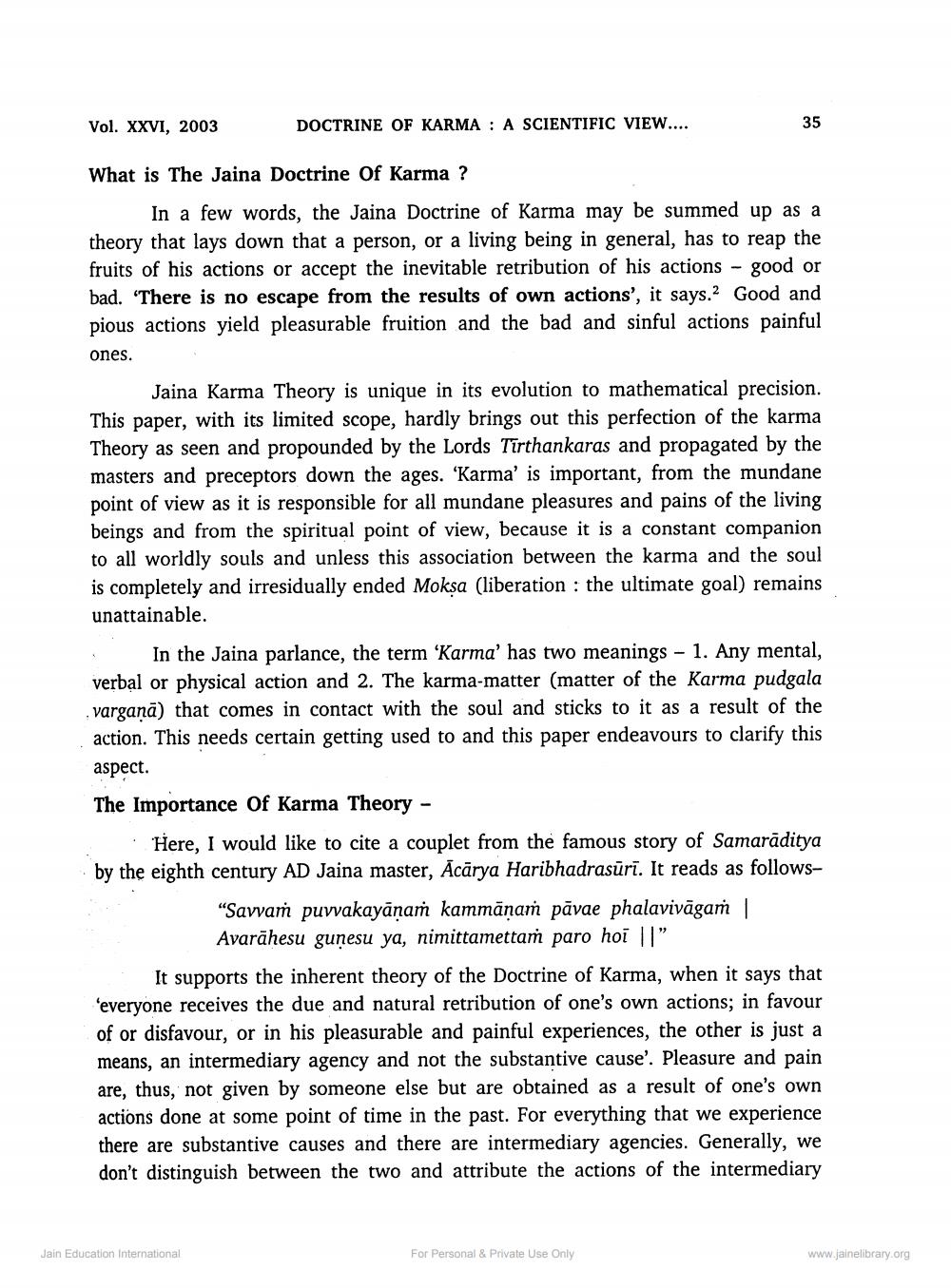________________
Vol. XXVI, 2003
DOCTRINE OF KARMA : A SCIENTIFIC VIEW....
What is The Jaina Doctrine Of Karma ?
In a few words, the Jaina Doctrine of Karma may be summed up as a theory that lays down that a person, or a living being in general, has to reap the fruits of his actions or accept the inevitable retribution of his actions - good or bad. "There is no escape from the results of own actions', it says.2 Good and pious actions yield pleasurable fruition and the bad and sinful actions painful ones.
Jaina Karma Theory is unique in its evolution to mathematical precision. This paper, with its limited scope, hardly brings out this perfection of the karma Theory as seen and propounded by the Lords Tirthankaras and propagated by the masters and preceptors down the ages. 'Karma' is important, from the mundane point of view as it is responsible for all mundane pleasures and pains of the living beings and from the spiritual point of view, because it is a constant companion to all worldly souls and unless this association between the karma and the soul is completely and irresidually ended Moksa (liberation : the ultimate goal) remains unattainable.
In the Jaina parlance, the term 'Karma' has two meanings - 1. Any mental, verbal or physical action and 2. The karma-matter (matter of the Karma pudgala varganā) that comes in contact with the soul and sticks to it as a result of the action. This needs certain getting used to and this paper endeavours to clarify this aspect The Importance Of Karma Theory -
Here, I would like to cite a couplet from the famous story of Samarāditya by the eighth century AD Jaina master, Acārya Haribhadrasūrī. It reads as follows
"Savvam puvvakayānam kammānam pāvae phalavivāgam
Avarāhesu gunesu ya, nimittamettaṁ paro hoi ||” It supports the inherent theory of the Doctrine of Karma, when it says that 'everyone receives the due and natural retribution of one's own actions; in favour of or disfavour, or in his pleasurable and painful experiences, the other is just a means, an intermediary agency and not the substantive cause'. Pleasure and pain are, thus, not given by someone else but are obtained as a result of one's own actions done at some point of time in the past. For everything that we experience there are substantive causes and there are intermediary agencies. Generally, we don't distinguish between the two and attribute the actions of the intermediary
Jain Education International
For Personal & Private Use Only
www.jainelibrary.org




